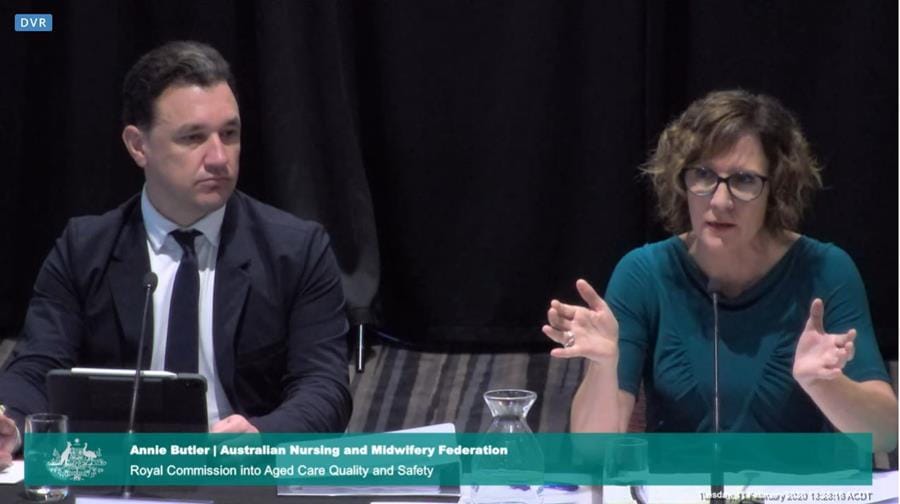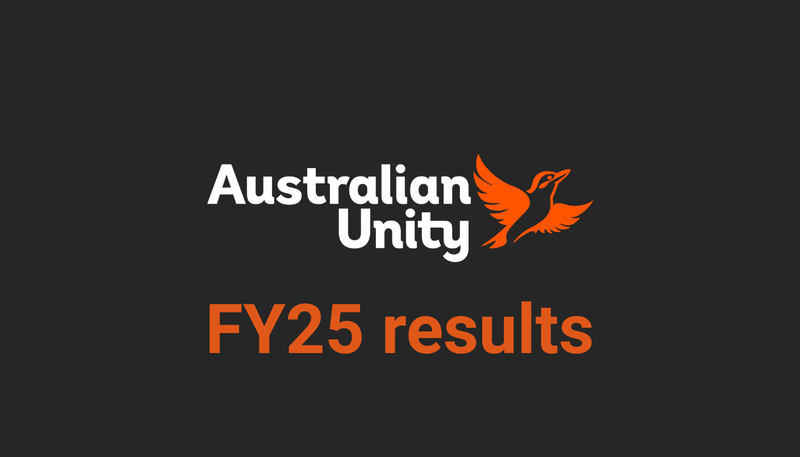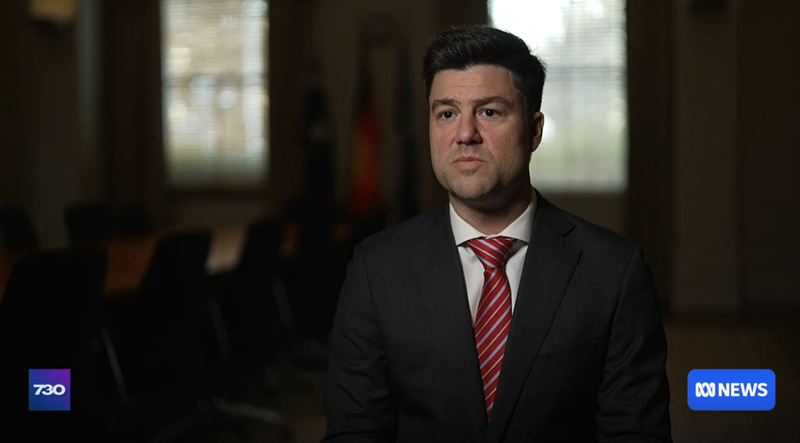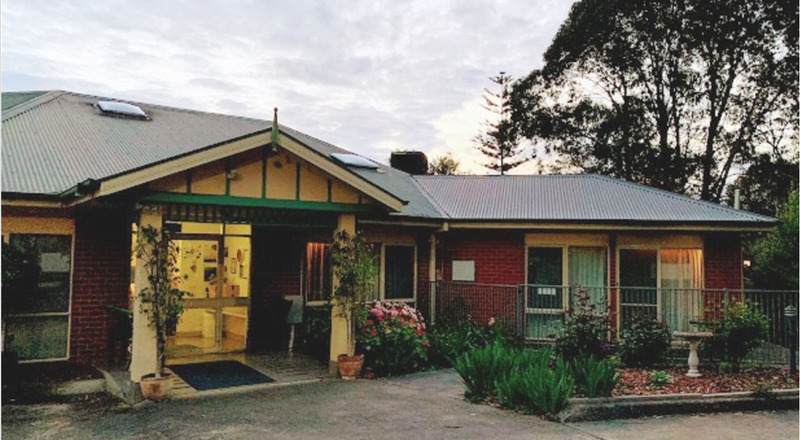Nurses reject idea of individualised funding to provide more support at home – but Department of Health representative backs separate ‘Care Stream’ in “very lively session”
Nursing representatives have categorically snubbed the Commissioners’ proposal to attach aged care funding to the individual so more older people can choose to receive care at home in the most heated session (labelled “very lively” by...

Nursing representatives have categorically snubbed the Commissioners’ proposal to attach aged care funding to the individual so more older people can choose to receive care at home in the most heated session (labelled “very lively” by Commissioner Tony Pagone) at this workshop.
Over an hour-and-a-half, Senior Counsel Assisting Peter Gray QC guided the panel through a series of interrelated questions on the ‘Care Stream’ (also called the ‘Care and Health Stream’) which would provide more flexible and less institutional forms of care either in the home or in residential care funded by individual packages assigned to the consumer and matched to their needs.
The eight witnesses were:
- Annie Butler – Federal Secretary, Australian Nursing and Midwifery Federation
- Maree McCabe – CEO, Dementia Australia
- Nick Mersiades – Director, Aged Care, Catholic Health Australia
- Matthew Richter – CEO, The Aged Care Guild
- Professor Deborah Parker – Chair, Ageing Policy Chapter, Australian College of Nursing; Professor of Aged Care (Dementia, UTS)
- Professor Mark Morgan – Royal Australian College of General Practitioners
- Melissa Coad – National Office Development and Industry Coordinator, United Workers Union (formerly United Voice)
- Dr Nicholas Hartland PSM – First Assistant Secretary, In Home Aged Care, Department of Health
Providing older people with packages for higher-intensity supports at home or less institutional settings theoretically could impact on the role of aged care nurses in the provision of care – and the nurses on the panel weren’t having it.
Prof Parker immediately rejected the separation of personal care from nursing or allied health care under the new Stream.
“The notion of separate funding streams assuming that no nursing or allied health or medical support is required until you get to the care stream I don’t think is the current reality that we have heard from older individuals giving evidence to the Commission,” she said, sounding like she was reading off notes. “And it doesn’t appear to be supported by a number of other submissions to the Commission.”
Mr Gray gently pointed out that under the proposed model, a care recipient could receive services under all three streams.
“Does that alter any of the propositions that you advanced about the inappropriateness of segregating care and the impact of that on holistic care?” he asked.
“I think the devil is in the detail of the delivery of it, so depends how the services are set up,” Prof Parker replied. “So if we are setting up services where we are literally I’m delivering just the personal care services and somebody else is delivering the reablement services and somebody else is delivering the nursing and allied health services and we haven’t mentioned the medical services, well we have heard so far in the Commission is that people do not get a seamless service across different providers where we have compartmentalised these funding streams.”
If Prof Parker was unhappy with the idea, then the ANMF’s Federal Secretary was even less impressed.
Ms Butler (pictured above right) warned against assigning individual funding to care recipients if the indicators showed the person should be in residential care.
“We are just not convinced that a system built on individualised funding via whether a voucher system or a debit card mechanism is the way to achieve it,” she said, raising her voice as she went on.
Again, Mr Gray showed he was committed to the Commissioners’ model, asking if it could be achieved with appropriate “market monitoring” and a funding mechanism for thin markets where an individual package wouldn’t work.
Ms Butler firmly reiterated her point that the ANMF doesn’t believe a market-based system is the way to achieve the Royal Commission’s goals.
She had support from Ms McCabe who added that people with dementia don’t always have the capacity or access to services to find services in a market-driven system.
The Senior Counsel wasn’t deterred however – and he found an unlikely ally in the panel’s Department of Health representative.
“We would be supportive of that,” Dr Hartland (pictured below right) stated. “I think if you are going to move to a needs based system which you what you are envisaging in your consultation paper you are going to have to give separate consideration to the funding of care because it will be the most expensive part of the system. So investments and what you have called basic support will, I mean they’re obviously very important parts of the system but the major costs are likely to be this stream and so you will have to think about how do you make sure that what you are funding is a genuine reflex of need in the way that you have defined need.”
The First Assistant Secretary did qualify that the definition of personal care would need to be redefined under the new system, but noted research shows consumer-directed care has a positive impact on the wellbeing of care recipients.
“We want to make sure that these issues around clinical governance and safety are important but we need [to] keep in sight there’s a link between having control over what happens to you and your sense of wellbeing,” he added.
Prof Morgan (pictured below left) also chimed in that if the model was based around identifying the unmet needs of care recipients, this would help to ensure packages were assigned equitably.
Given her clientele, Ms Coad (pictured above right) also had an issue with individualised funding, pointing out that in the NDIS, the packages only cover face-to-face support – not team meetings, training or supports for staff.
But Mr Mersiades (pictured above left) offered a potential solution that would cover these overheads.
“A compromise position would be you have your classification system and you allocate an amount of money as you indicate but instead of that being dealt with for a separate budget for which you purchase individual services and you get an invoice and you pay with a debit card and what have you an alternative approach is once you have been assessed at a particular level and classification, you actually enrol with your preferred provider,” he explained. “And in that case, the provider and you work together to meet your care needs as they fluctuate over time.”
However, the Director of Aged Care said his preferred system was one where people could opt out and choose to use their individual budget in the same way as a Home Care Package.
Interestingly, this scenario involved a convincing argument for the number of home care providers to be radically consolidated.
“It won’t be everyone’s cup of tea,” Mr Mersiades went on. “Then you can get providers who are competing with each other. The other thing about the current system is that we’ve got a couple of thousands of home-based care providers, many of whom just deliver a limited range of services, they are just contracted for those. Whereas if we had a complete restructuring so that in each region there was two or three large providers who can meet your across the board requirements, you are going to end up with a far more efficient system than you have got at the moment and I think one that meets people’s needs better rather than having to shop around and just receive the services that the provider happens to being contracted to deliver for you.”
There were also strong hints from Senior Counsel that there should be incentives to develop an ‘intermediary’ market of aged care accommodation between the family home and 24/7 residential care.
Mr Gray noted that several of the submissions from aged care providers had called for a future requirement for 24/7 residential care for people with complex or chronic care needs, while the Combined Pensioners and Superannuants’ Association (CPSA) said there was a need for people to begin planning ageing-appropriate accommodation earlier in life.
“Is there room for a principle that receiving aged care may have to require moving to appropriate accommodation for the delivery of care, whether that’s some form of flexible accommodation where the person is more approximate to the services they are going to need or indeed 24/7 institutional residential care,” he questioned. “Should incentives be built into this care stream framework for varied accommodation to foster as much independence as possible in that grey area between staying at home in the traditional family home and moving into fully institutionalised residential care? Can this be left to market forces to drive innovation or is there a role here for a capital grants program?”
Mr Richter (pictured top left) agreed there was room for more options in the middle ground.
“I see growth I think you might call it intermediary setting, your cottage type homes and different shared accommodation and lots of options in there which Australia really hasn’t grasped yet,” he stated, adding: “Retaining a 24/7 residential setting is, I think, very important but it doesn’t need to be the primary part of the system.”
The Aged Care Guild CEO also supported the idea of capital grants for rural and remote areas and for increasing specific types of accommodation.
There was an underlying question that wasn’t answered though – will the Government be prepared to fork out for individualised funding?
Dr Hartland used LASA’s submission on the Consultation Paper to add that any introduction of individualised budgets would need to set down what supports are “reasonable and appropriate” for the packages to cover – similar to section 34 of the NDIS Act.
“That’s a submission you have mentioned suggests there should be a plan B because that level of budgeting might be not accepted by government,” Mr Gray observed. “Are you, in effect, giving the Royal Commission a hint that that might be quite a high level?”
“I definitely did not want to end up with that impression, no that wasn’t the point I was make,” Dr Hartland answered quickly. “I think that what I’m saying to you is that level of the normative standard is … that bureaucrats are not well placed to provide advice on and it’s something that the Royal Commission will have to come to and it’s a really important part of what you do.”
Will the Commissioners take LASA’s advice and provide a ‘Plan B’ regardless?





